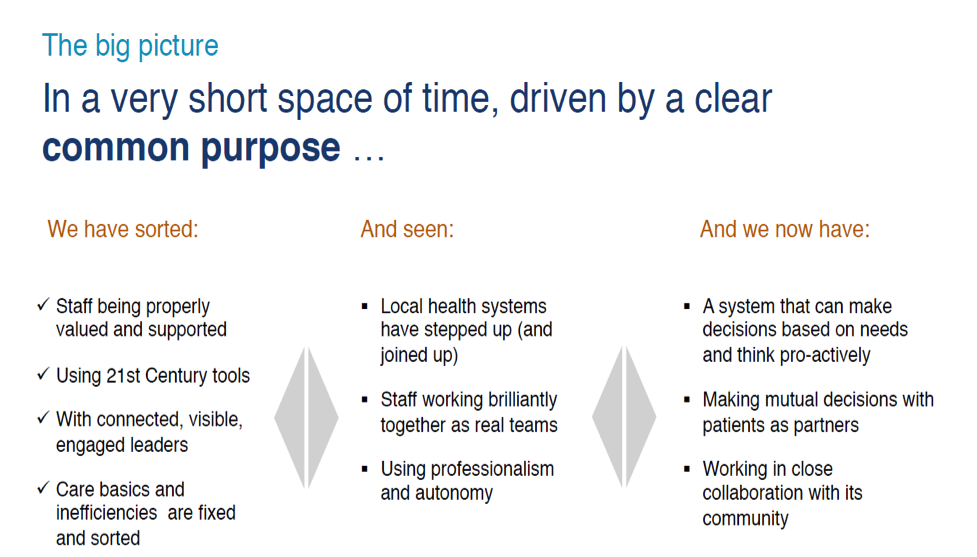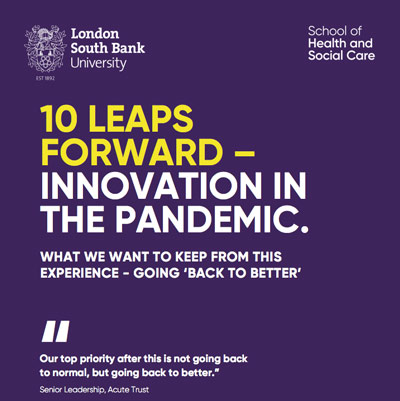Search our site...
Search module

Leading in the pandemic
The NHS needs support to hold on to the progress made during the pandemicInnovation in the Pandemic: Proactive Leadership in the NHS
During the pandemic, there have been a number of important and exciting changes to the health and care system. Almost overnight, in some places, the NHS became a high performing health system for people with Covid-19.
The NHS needs support to hold on to this progress and to use it to proactively shape the NHS from here on. At LSBU we have:
- Undertaken a survey of NHS staff asking: "What do you want to keep and what should never be repeated?"
- Inquired through a series of Communities of Practice with NHS leaders on how to embed proactive leadership.
- Prof Malby has been interviewing international leaders on the challenge facing health systems – Leading Through the Pandemic: Lessons for the NHS
Innovation in the Pandemic: Survey Results
Alongside the frustrations, difficulties and challenges of the pandemic, many great things are happening in the healthcare system. We undertook a survey to help the NHS remember and build on them, so that we don’t end up going back too old, less effective habits. This is an iterative research process and at this stage we have the results of Survey One (54 responses) which has been used to design Survey Two (currently in progress).
The survey showed that almost overnight, for some people, the NHS turned into a high performing health system. NHS transformation boards have been working for years to lead the NHS into New Models of Care that mimic those that are already bread and butter in high performing health systems around the world – Intermountain, Nuka, Jonkoping, Buurtzorg – places that have been visited by countless NHS staff, and that have mentored, coached and supervised the NHS over many years.
Yet within all the things staff wanted to keep, were all the key conditions of these very effective health systems. The NHS has accelerated the pace of change during the Covid-19 response. Understanding these changes is critical to then supporting leaders to secure these as ‘cultural and organisational norms’.
Many will describe the digital innovation both in primary and secondary care, but the responses to the survey demonstrated a much wider cultural shift.

What has worked has been relational conditions that underpin all high performing health systems, achieved by extraordinary professionals and communities, given the space and trust to develop evidence-based solutions through learning collaborations.
The survey also asked both what innovations should the NHS keep, but also what should it never repeat. There was a lot of anger about some specific handling of the crisis – PPE and shielding for example. In addition, more reflective comments were made about aspects of the ‘old world’ that should not be returned to: command and control structures, bureaucracy, silos, the deficit and dependency culture and red tape. There was also outrage at the impact of lack of funding for the NHS, and the neglect of care homes.
